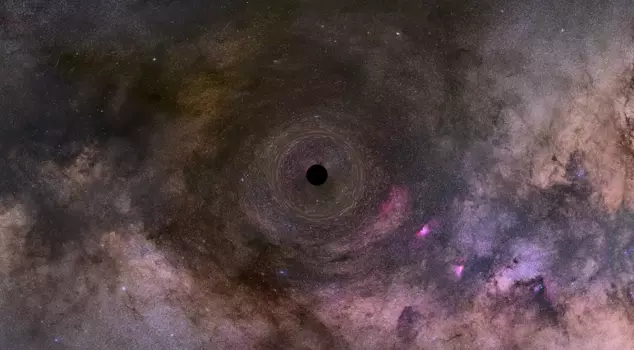
25.04.2025 17:41
NASA has captured an image of a black hole wandering alone in the Milky Way galaxy for the first time. The black hole, which has a mass of approximately 7.1 times that of the Sun and is located 4,958 light-years away, is reported to be moving through space at a speed of 51 kilometers per second.
Scientists from the National Aeronautics and Space Administration (NASA) have captured an image of a black hole wandering alone in the Milky Way galaxy for the first time.
IT TEMPORARILY DISTORTS LIGHT FROM A STAR BEHIND IT
The black hole, which has a mass of about 7.1 solar masses and is located 4,958 light-years away, is reported to be moving through space at a speed of 51 kilometers per second. Typically, black holes are detected by orbiting stars or other black holes. However, this object was found to temporarily distort the light coming from a star behind it using a method called 'gravitational microlensing.'
PHOTOMETRY DATA COLLECTED FROM 16 DIFFERENT TELESCOPES
The event, first detected in 2011 as part of the Optical Gravitational Lensing Experiment (OGLE) and Microlensing Observations in Astrophysics (MOA) projects, was analyzed in detail. The Hubble Space Telescope conducted 8 separate observations over 6 years to measure the deviation in starlight, and photometry data was collected from 16 different telescopes. Researchers stated regarding the discovery, "The revised analysis we conducted with the addition of Hubble observations and updated photometry achieves results with a higher accuracy rate but is consistent with our previous measurements and our conclusion that the lens is a stellar-mass black hole."
SIMILAR ONES MAY EXIST
Although it is noted that this is the first black hole confirmed to be moving alone, it is recorded that similar black holes may also exist in the universe.